KAROO NEWS
Extra! Extra! Read all about it in The Messenger
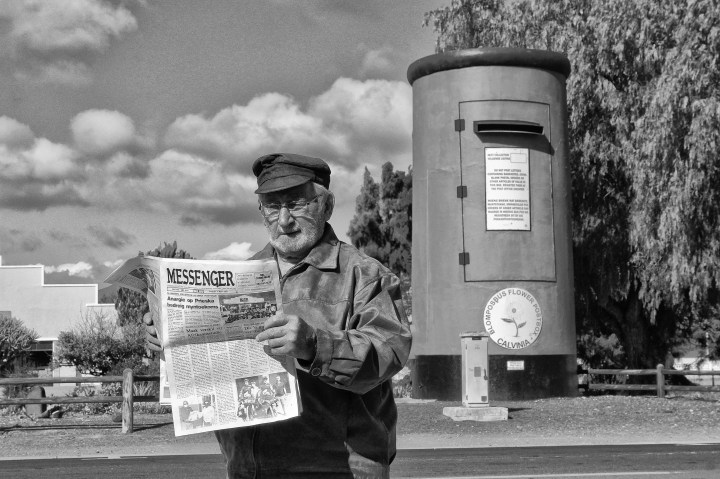
One of South Africa’s longest-surviving weekly country newspapers still operates in the Karoo. You should meet the guy who runs the show these days.
The authors of this article are both former newspaper reporters – in all our years on the papers, the only time we ever ventured downstairs to the printers was to attend the company Christmas Party, where grubby blue collar would meet wine-stained white collar and share a dram or two.
Although we loved the sights, sounds and smells of our print shops, we had no idea of how they worked. Like water just flows from a tap, all we knew was that the latest editions of our respective newspapers were the end-products of a mystical process. And, if we were lucky on the day, one or two of our own stories would be in the editorial mix.
Old School Print Shop
So when we pitch up in the Northern Cape town of Victoria West in 2016, we are intrigued to hear of an ancient print shop on the main street, behind the Kempen & Kempen law offices. We have to find out more.
A friendly auditor called George Kersop opens up for us and there it all lies: the Original Heidelberg printing presses, the paper guillotines, piles of printer’s trays, and rows of lead type ready to be arranged and stacked into this week’s news of note. This was once the home of the venerable Victoria West Messenger, a very old country newspaper.
The morning sun shines through the windows and we stroll around, disturbing dust motes that rise in the light. There is a faint smell of hot ink, oil and bird droppings. But there is also still the embedded memory-magic of deadlines chased, local, national and world news written, processed and printed, and a Karoo community informed on many levels.
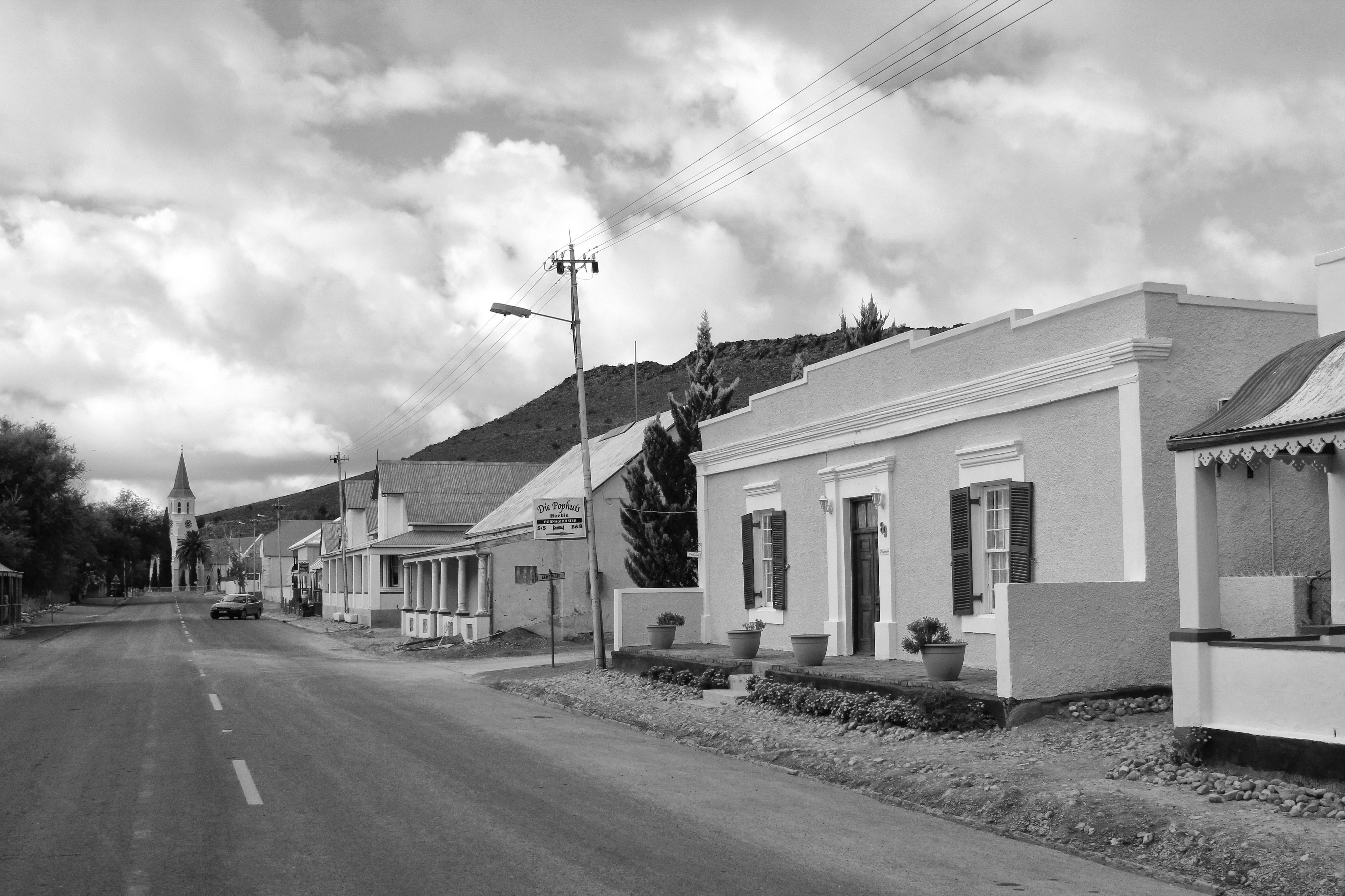
Victoria West: first home of ‘The Messenger’. Image: Chris Marais
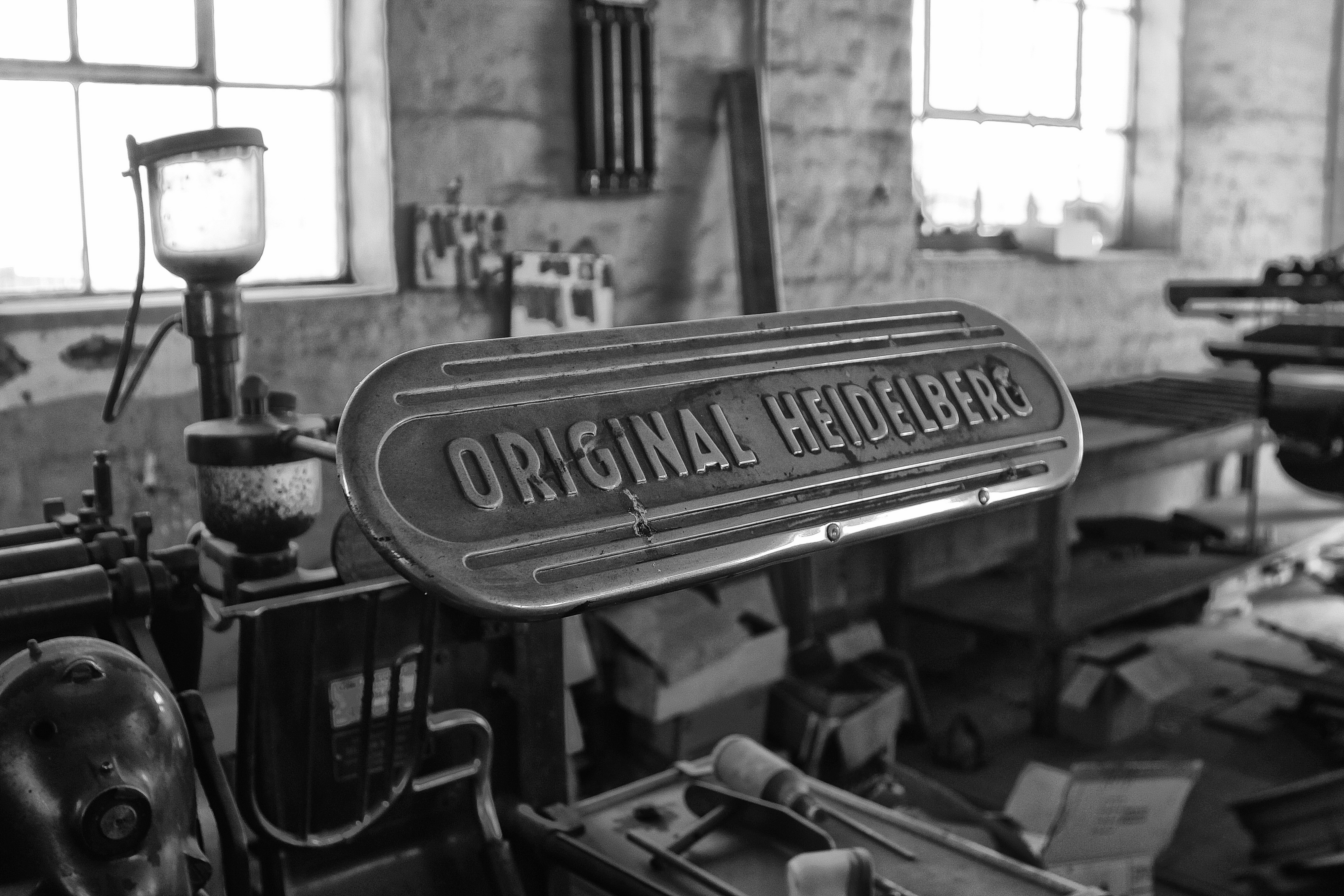
One of the Heidelberg printing presses in the old Messenger offices in Victoria West. Image: Chris Marais
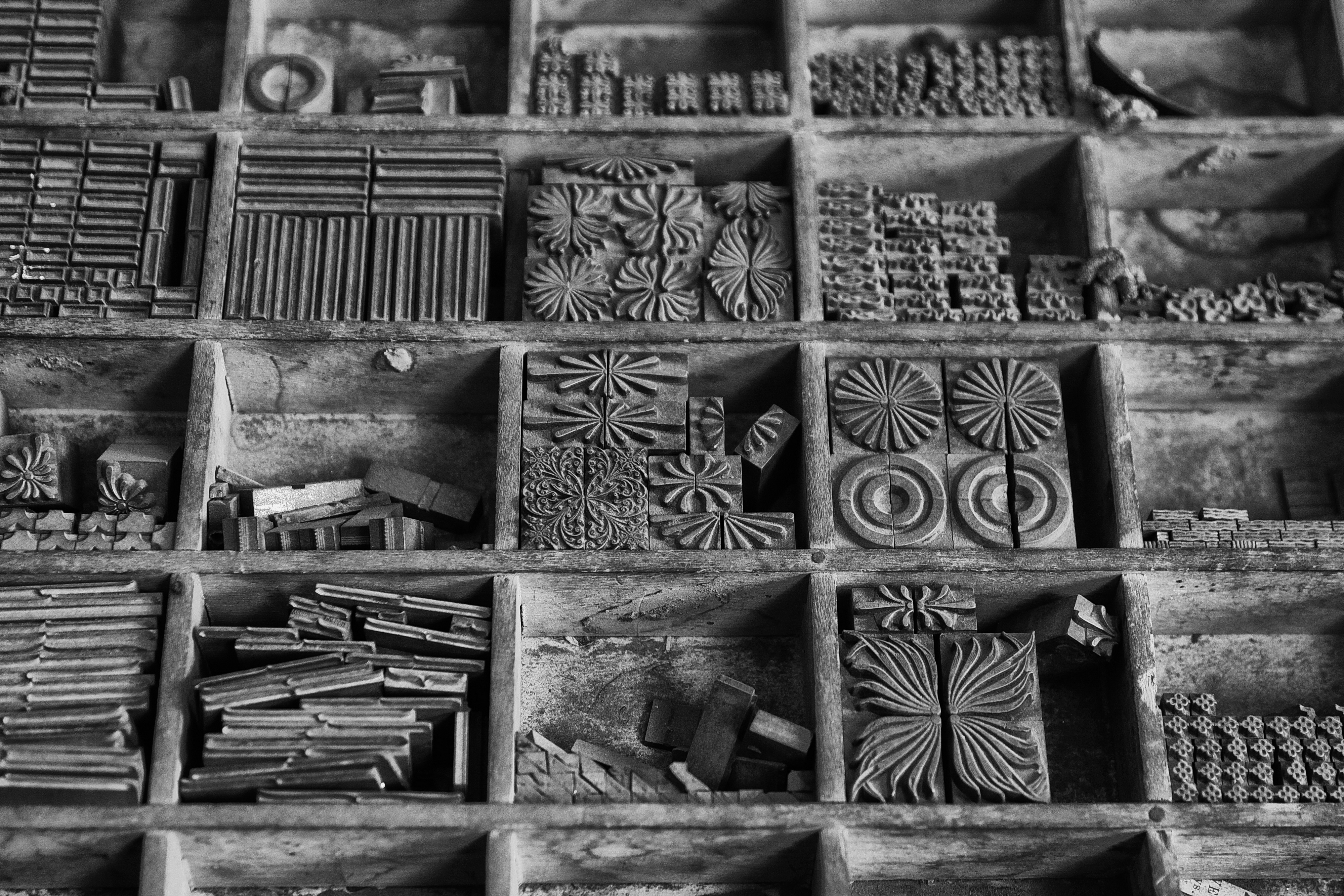
Boxed magic – an Old School printer’s tray packed with lead. Image: Chris Marais
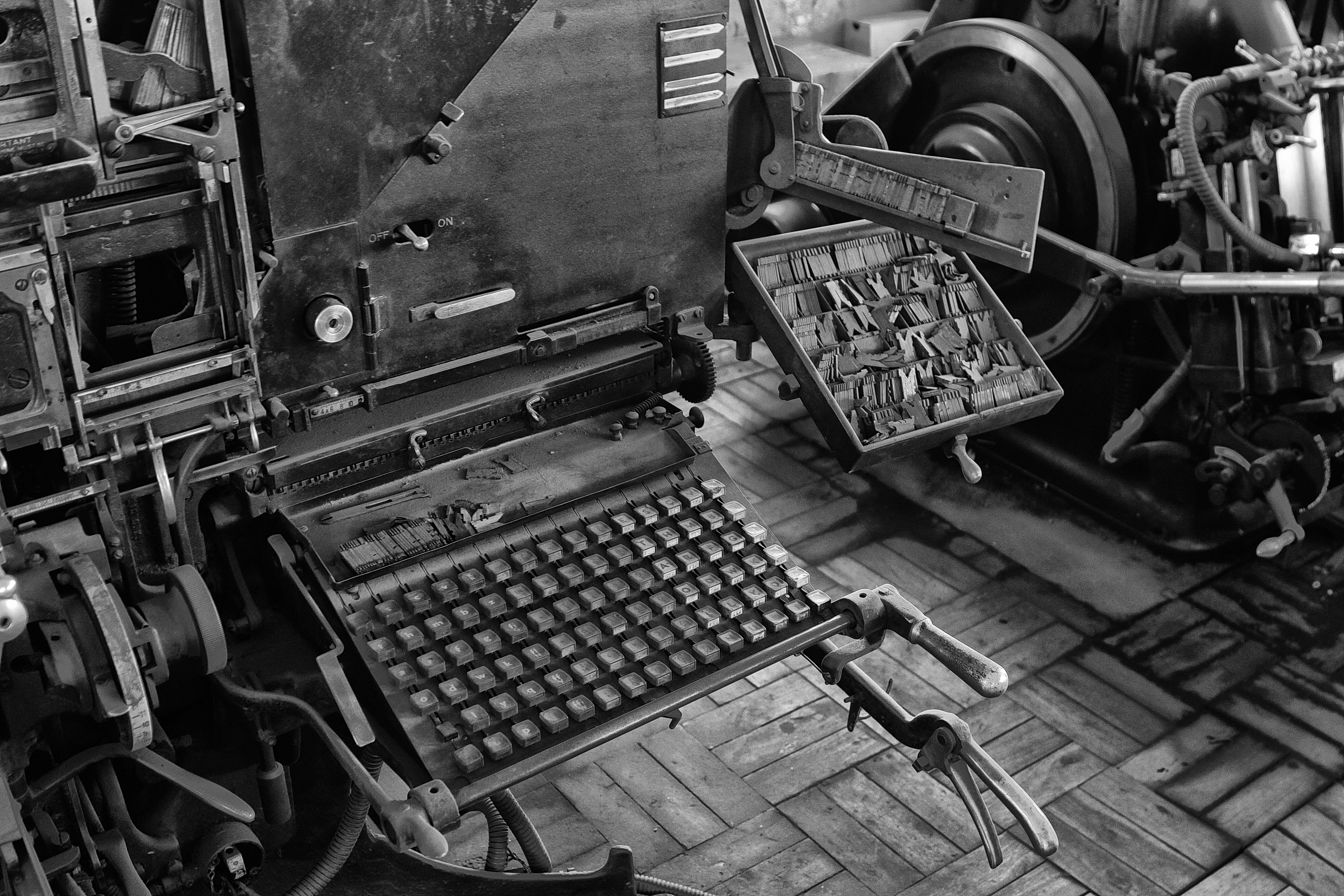
The Heidelberg printer’s keyboard is forever still. Image: Chris Marais
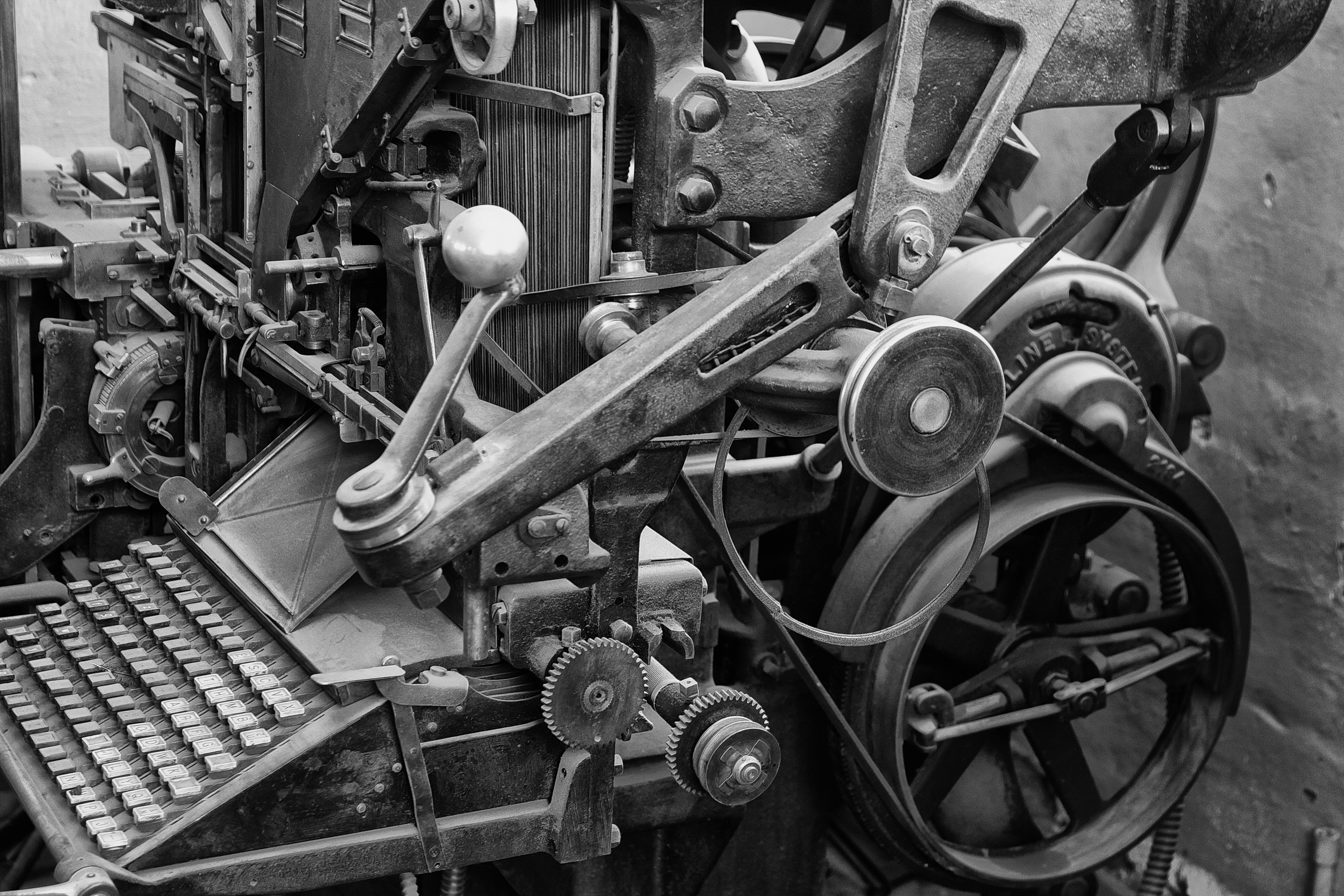
The Heidelberg printer’s keyboard. Image: Chris Marais
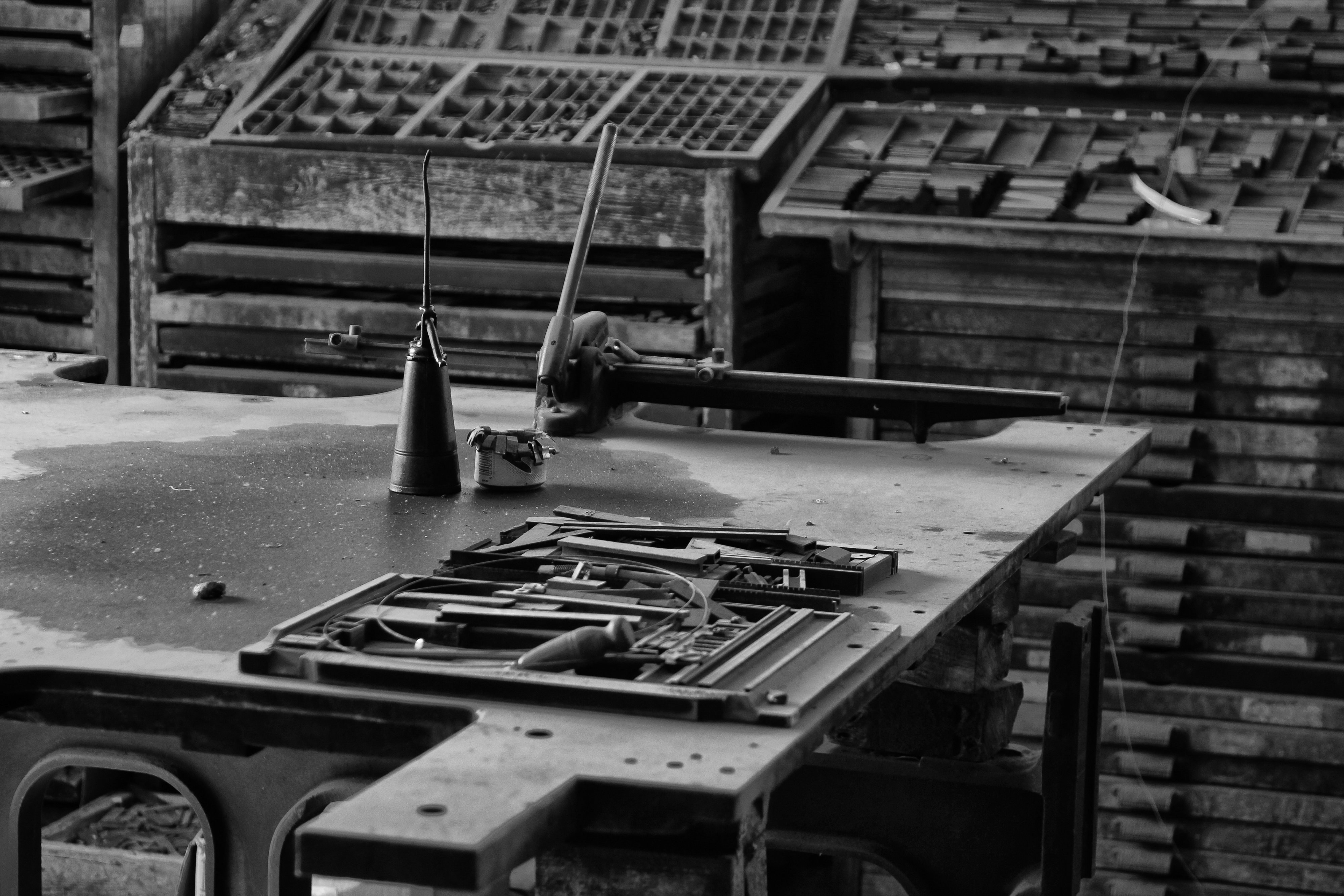
Quiet repose after decades of frantic printing activity. Image: Chris Marais
A Remarkable Country Newspaper
The Victoria West Messenger was born on 11 July 1875. The little Northern Cape farming town lay on the fabled Diamond Road between Cape Town and Kimberley, where a full pack of hookers, hucksters, chancers and chandlers were operating alongside men who were actually getting their hands dirty on the diggings. There was much to report on, as the diamond boomers flowed through a rather astonished Victoria West on their way north.
The Victoria West Messenger was launched by Christiaan W Zinn in 1875, and left in the care of his son (also a Christiaan) in 1890 until 1902, when a human whirlwind called DM Olleman took over as manager. He ran the show until 1908, when he went off to manage The Friend in Bloemfontein, launch the ever-successful Farmers Weekly, the now-defunct Motor Weekly, Outspan and Personality, and become the prime mover behind the Argus Group of newspapers, where we cut our professional teeth back in the day.
Over the decades since its inception, The Messenger reported on mainstream news like the Anglo-Boer War, the establishment of the Union in 1910, World War I, the Spanish Flu of 1918, the Great Depression of the 1920s, World War II and all the other epochs that followed.
The Seduction of Small News
But the true value of a community newspaper like The Messenger was that it also covered the minutiae, the “real news” that people living in Upper Karoo towns from Calvinia to Carnarvon, Williston to Victoria West, craved.
Legendary South African author, historian and general boffin Eric Rosenthal wrote a slim but excellent book, One Hundred Years of Victoria West (1859-1959), in which he extracted all sorts of up-the-road happenings as reported by The Messenger at the time.
The five jail-breaking desperadoes and the Maria Morris Murder of 1877; the village crisis of 1881, when the only person qualified to send telegraph signals fell gravely ill; the bitterness of 1883, when the railways bypassed Victoria West and stopped at Hutchinson instead; the 1891 failed rainmaking attempt by Dominee GA Maeder, who went to the top of a hill and launched explosives into a passing cloud; the 1896 invention of a 52-piece steam organ by a local called Christiaan Olwage; the arrival of the horseless carriage (motor car) in Prieska, where “small boys fled in terror, women screamed and strong men turned pale”; the designation of Victoria West as an “Air Service Station”, an international aerodrome in 1919; the establishment of the Petrus Hugo Spitfire Fund in the 1940s, when a homeboy flying ace was in the thick of the Battle of Britain and Victoria West raised enough funds to buy him a fighter called “The Karroo”. And so on.
Modern-Day Messenger
Enthralled by this publication, we buy a fresh copy (11 March 2016) of The Messenger at the shops and note the headlines:
The Square Kilometre Array (SKA) outside Carnarvon is about to deliver vast volumes of data; a chap called Adriaan Estes is charity-walking with a huge wooden cross all the way from Cape Town to Bloemfontein; there’s a hoax story about a kid trapped in a squatter camp drain; sporting hero Kiewiet Jaers comes good at a provincial athletics meet and a whole bunch of veteran cars are rallying on 19 March to raise money for Huis Frieda Kempen, the old-age home hereabouts.
There is also something on the blue-green algae in regional dams, the ongoing madness in Parliament down in the Cape, and a favourable review of a new book on explorer-soldier Robert Jacob Gordon.
We discover that the Victoria West Messenger has been renamed The Messenger and moved to Calvinia, where it shares quarters with Die Noordwester and Die Oewernuus.
“We must go there sometime,” we agree, and pin the idea for five years.
Frans Hugo’s Weekly Journey
In May 2021, we finally arrive in Calvinia to finish the story of The Messenger.
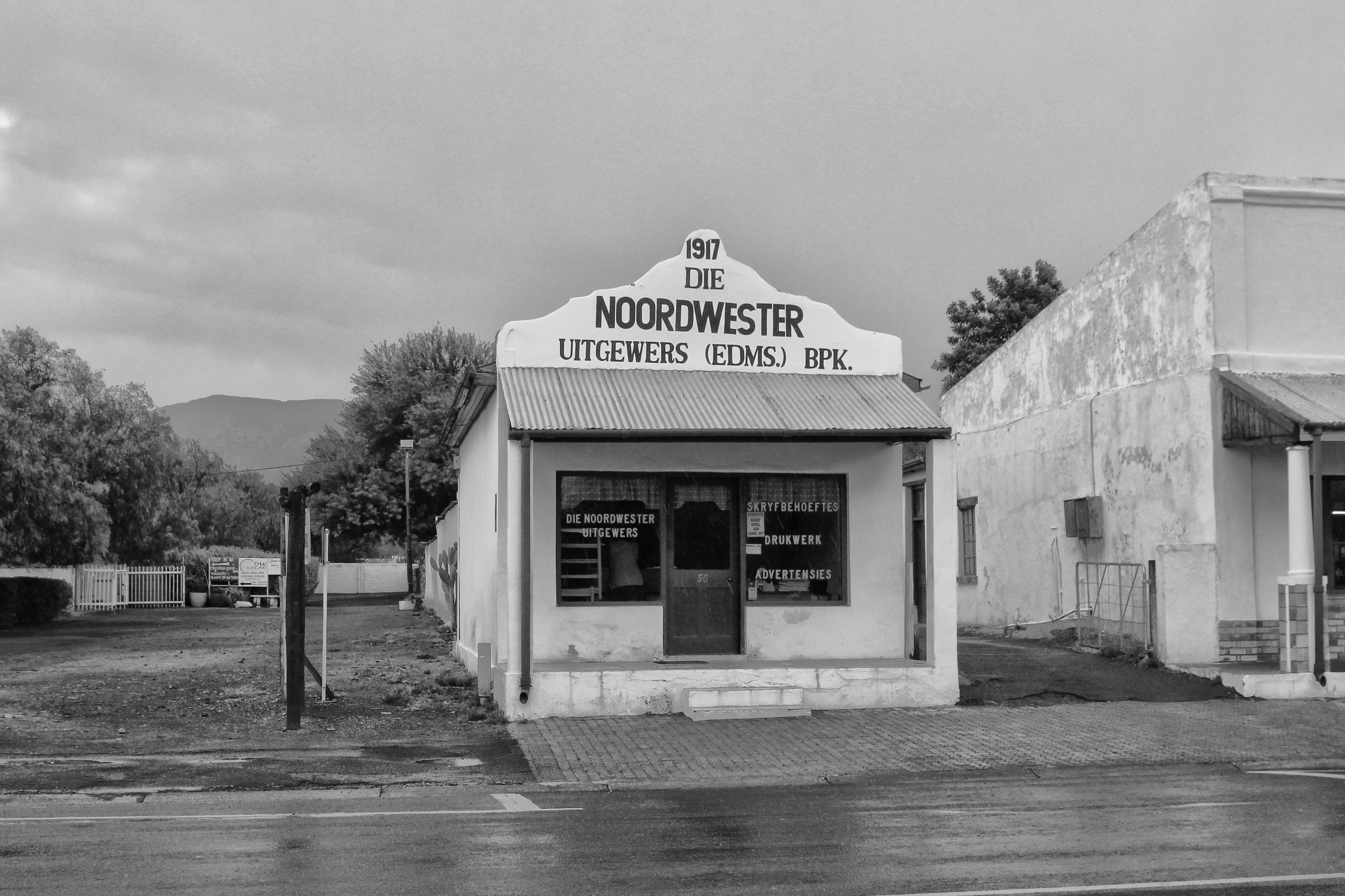
The present-day ‘Noordwester’/’Messenger’ offices in Calvinia. Image: Chris Marais
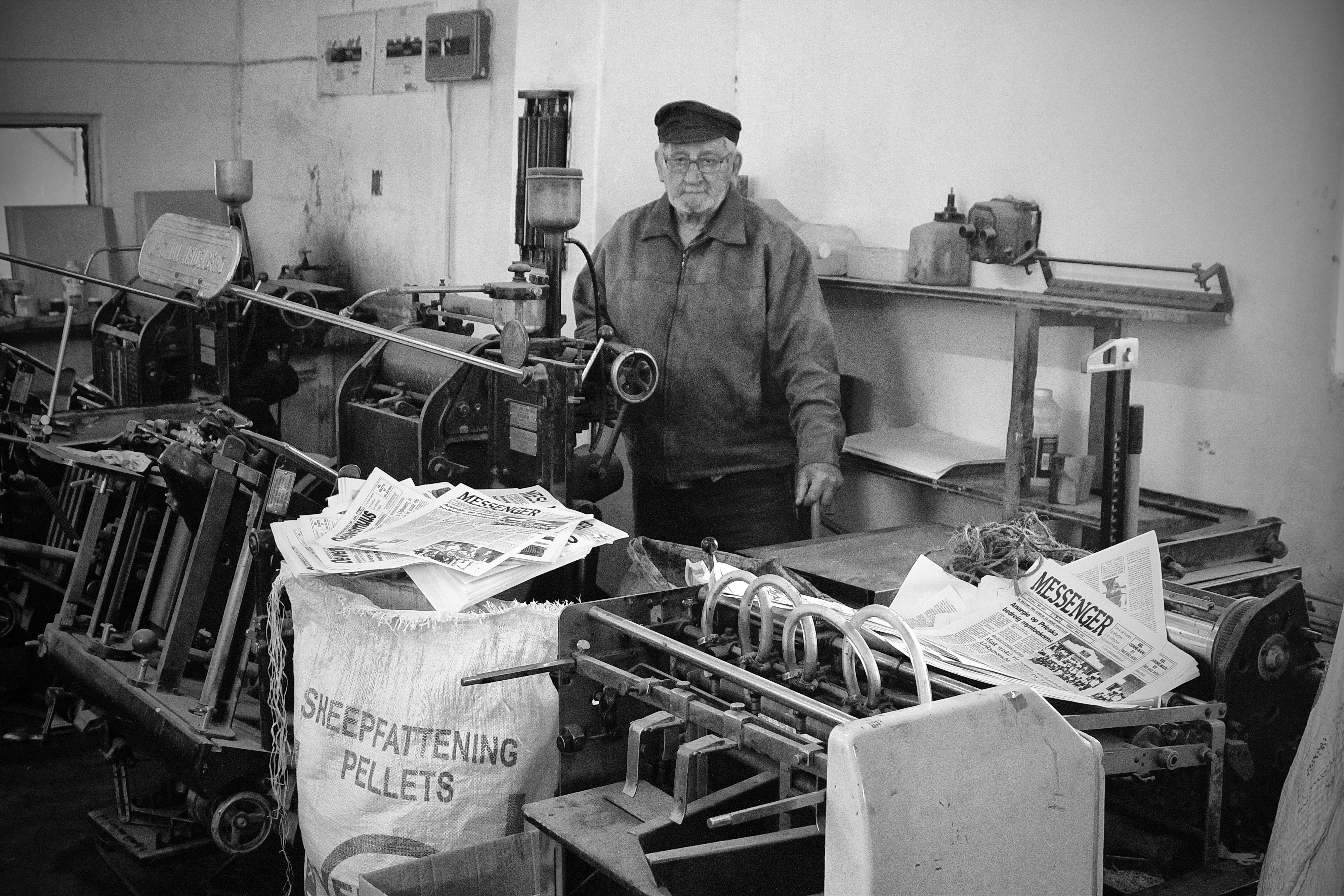
Frans Hugo busy in his print shop. Image: Chris Marais
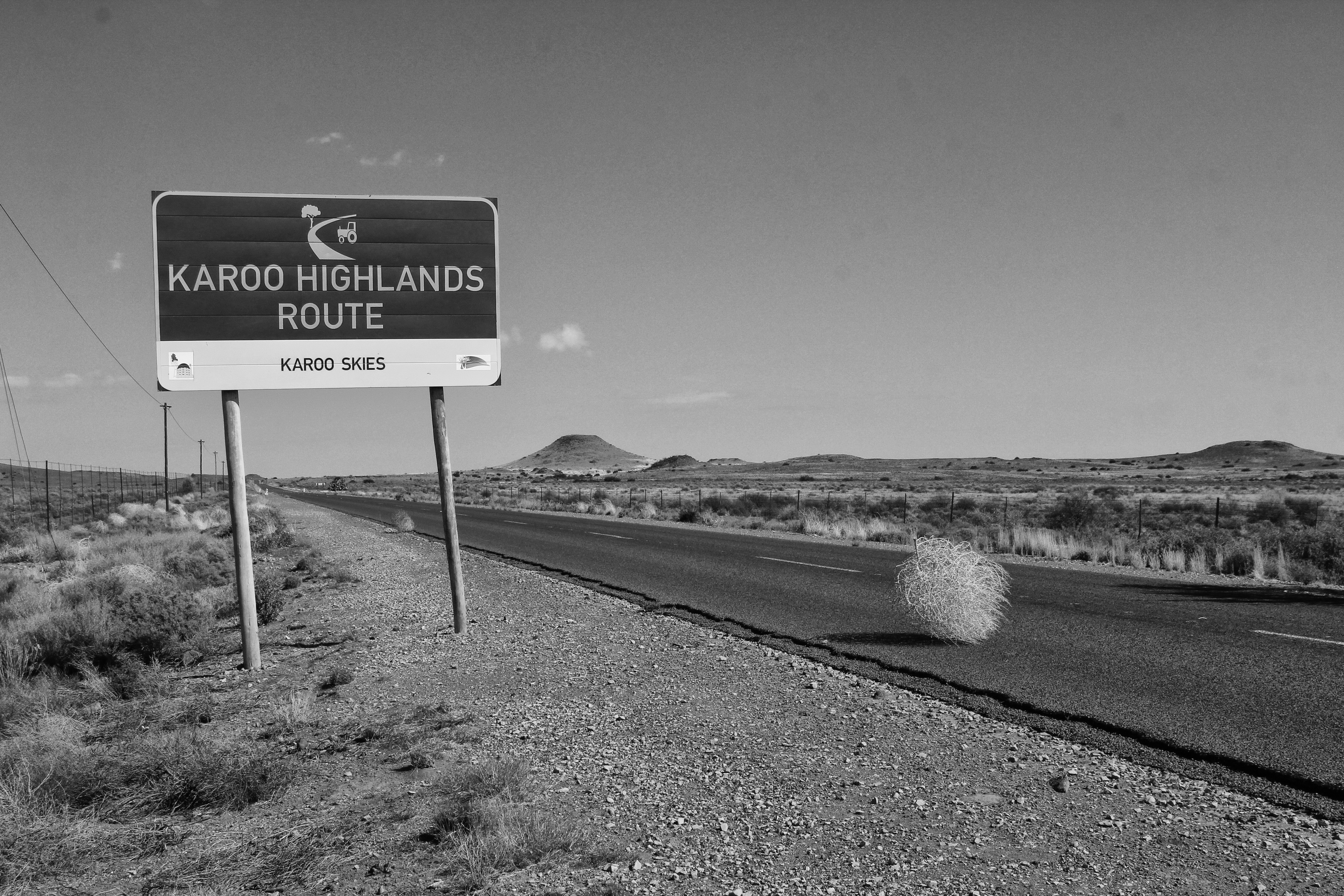
The R63 highway, which Frans Hugo travels every Thursday. Image: Chris Marais
In a small shop on the main street, the 89-year-old Frans Hugo, his wife Maxie and their assistants are hard at work on this week’s edition. Frans, it turns out, is one of the few newspaper men in the world who can navigate the innards of a Heidelberg press, the entire printing process, the reporting, gathering of announcements and, wait for it, the distribution of his three newspapers every week over vast distances of the Upper Karoo.
He can even cadge the odd advertisement from one of the municipalities in his bailiwick.
Aided by Maxie, former curator of the Calvinia Museum, he prepares the newspapers, has them printed, packed in his Fiat diesel bakkie, and on Thursday mornings at about 3am, begins a long, looping journey that takes him from Calvinia to Carnarvon, Loxton, Vosburg, Victoria West, Prieska, Vanwyksvlei and Brandvlei. It’s a 1,200km road trip most travel journalists would feel proud to accomplish once a year.
The lead story this week is headlined: Anargie op Prieska – Anarchy in Prieska.
“Last Thursday, when I was there dropping off papers, all the roads were blocked with stones and tyres were burning,” he says. “The community wants more involvement in the local mine. They accuse the mine bosses of bringing their own people in.”
On Thursdays, his first stop is the petrol station in Williston, where he leaves a pile of newspapers with one of the attendants to drop off at a shop later in the day. The local Williston doctor, headed for his weekly visit to Fraserburg, takes some of the editions with him. It’s hand-made Karoo distribution at its best, with many informal working parts.
“Then I head off to Carnarvon,” says Frans. “Their municipality takes papers for me up to Vanwyksvlei.”
Sometimes his weekly distribution forays end up with a flat tyre on a dirt road, and sometimes stuck in a Loxton water furrow.
“Then I’d have to call someone to help. I used to do all the mechanical work myself, but I’m a bit too old to crawl under vehicles these days.”
The years have not dimmed his passion for the Karoo, he says. “Every week, I see something new out there. The way the moon rises, the light catching on the side of a wind pump, the Anglo-Boer War blockhouses, and the old, deserted train stations, they all look different every time.”
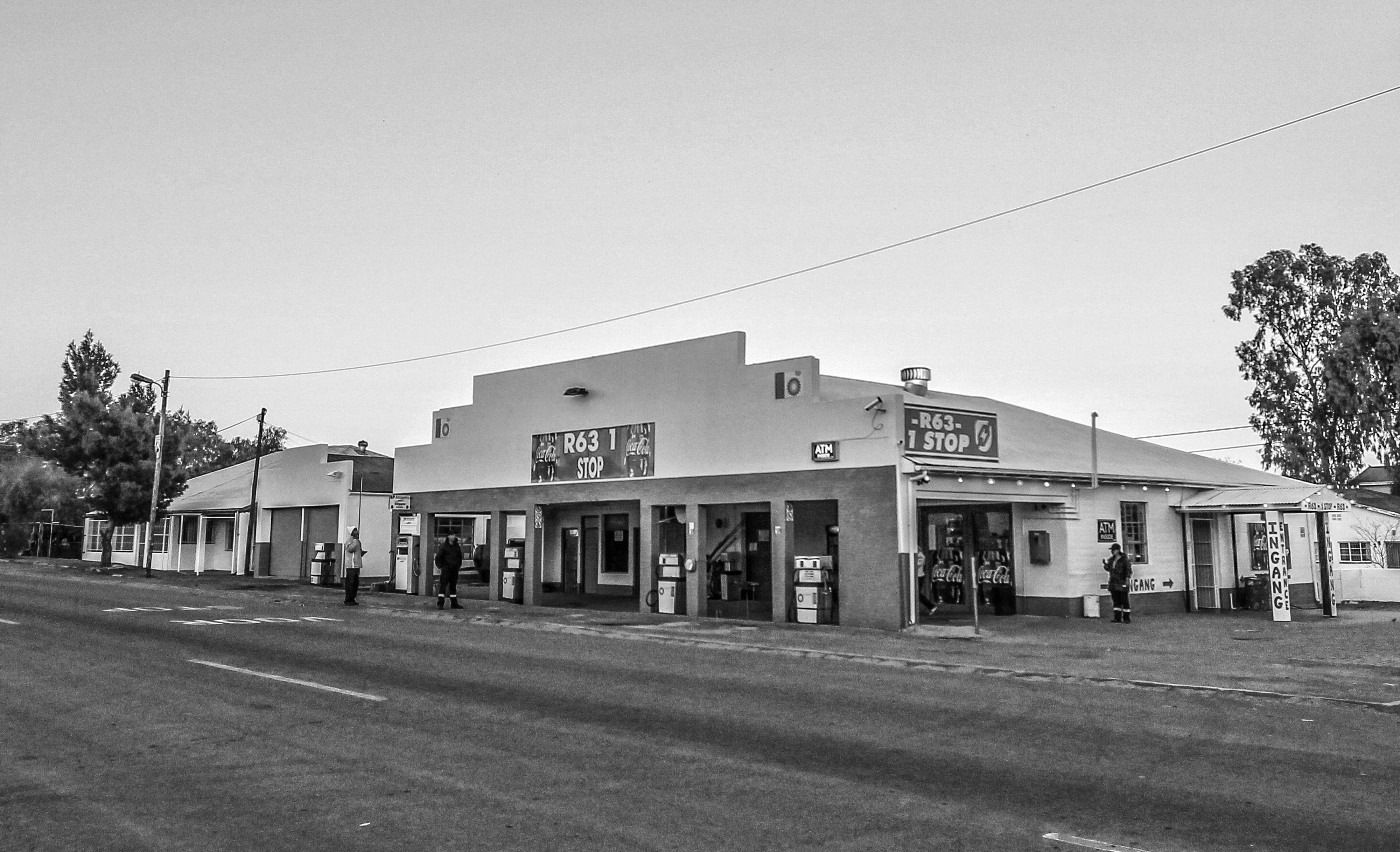
First stop: the Northern Cape town of Williston. Image: Chris Marais
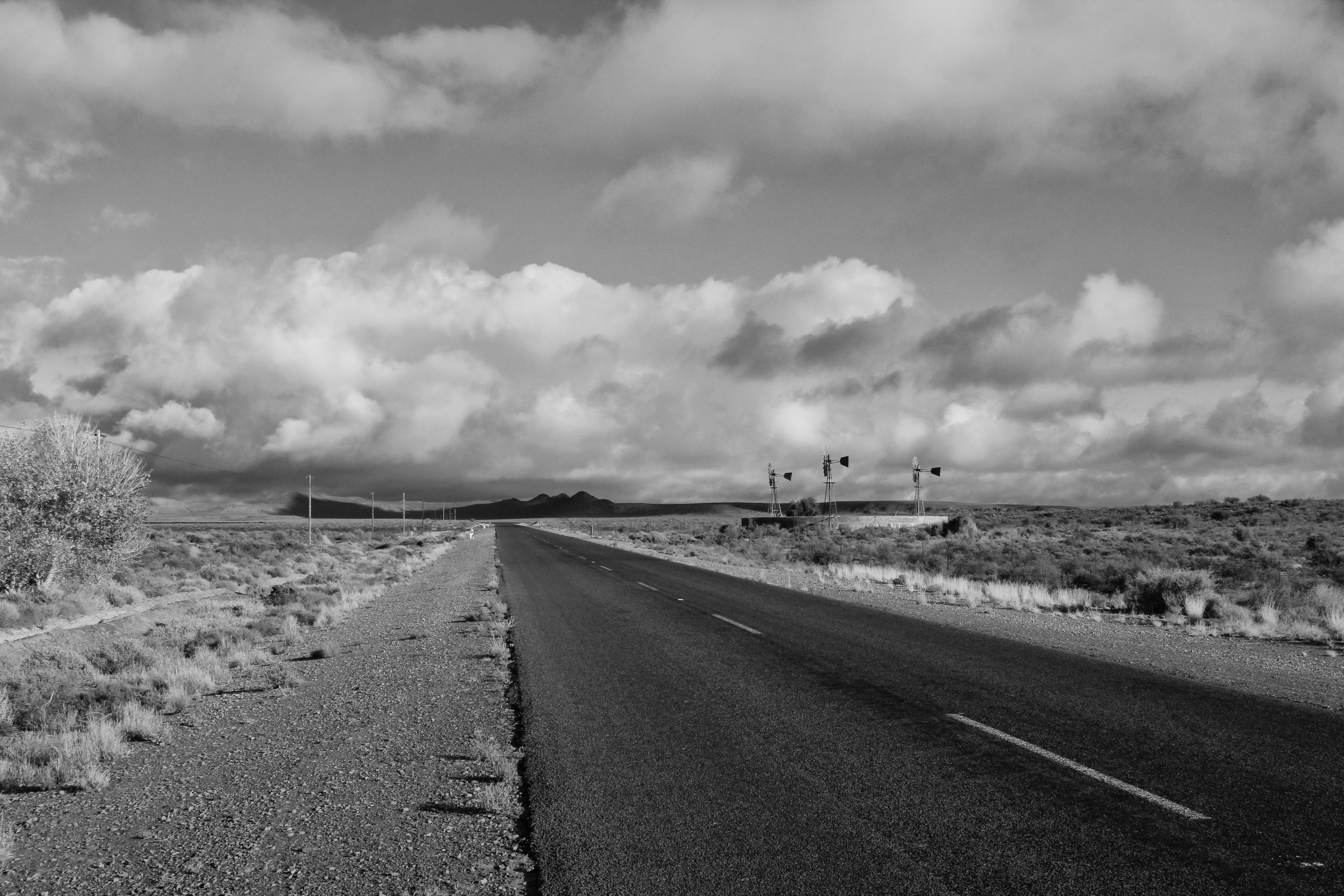
The real reason Frans Hugo still drives 1,200km each week to deliver his newspapers: the Big Sky Highway of the Northern Cape Karoo. Image: Chris Marais
Ink in the Blood
Born in Cape Town in 1932, Frans Hugo began his newspaper career as an apprentice compositor with the Nasionale Pers group. Then he saw an ad for an all-rounder’s post at the Victoria West Messenger, applied for the job and was swiftly hired.
An ambitious young man, Frans crossed the No Man’s Land between the print shop and the newsroom and honed his writing and photographic skills.
“On a small newspaper, you learn to do everything,” he says.
In those days, the South African railway system was a thing of beauty, so Frans would stow his bicycle on a train to get to neighbouring towns to gather story leads, advertising material and, with a bit of luck, an additional print job for the hungry Heidelberg presses back at home base in Victoria West.
“Shortie McIntosh used to work the linotype and Piet de Wet handled the printing machines. We had to be able to fix those old Heidelbergs, otherwise you had to bring someone in and they’d charge you R4,000 just to get here.”
One of Frans’s pet peeves is the trend of online news-reading. There is no digital version of his newspapers.
“We used to print 2,500 copies of The Messenger,” he says. “Now we print only 1,300. It’s because many people like to read their news on cellphones.”
We want to know if Maxie and Frans have any succession plans for their newspapers, and they shake their heads. “They will probably die with us.” DM/ML
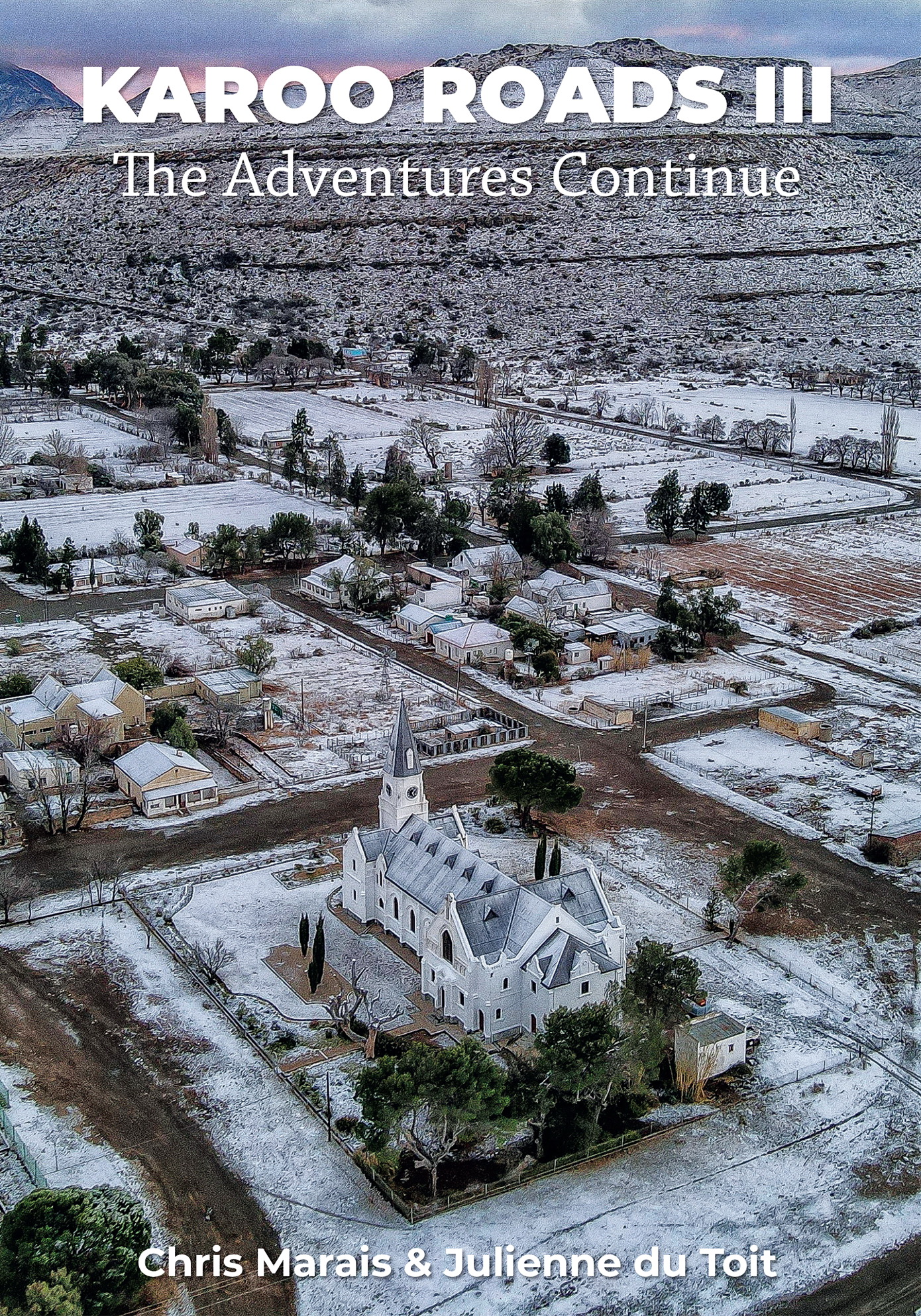
This is an extract from Karoo Roads III – The Adventure Continues, by Chris Marais and Julienne du Toit. For author-signed, first-edition copies of Karoo Roads III, email Julienne du Toit at [email protected]
In case you missed it, also read Karoo Roads III – From the studios of snowy Nieu-Bethesda to the stony heights of the Richtersveld
Karoo Roads III – From the studios of snowy Nieu-Bethesda to the stony heights of the Richtersveld
Visit Daily Maverick’s home page for more news, analysis and investigations


















 Become an Insider
Become an Insider
Oh boy oh boy, this story brings me so much joy. I worked on the last hot metal presses at Old Aunty Argus, was stone sub for a while, lured into touching a printing tray and the whole works shut down – union rules. They did it all new stone subs, get to the pub early that day. See: wazygoose.
Aaah, those were the days we had real people working not like the rice krispie generation of today that sit in front of computers and think they are working hard and sales people who think selling can be done over the phone!